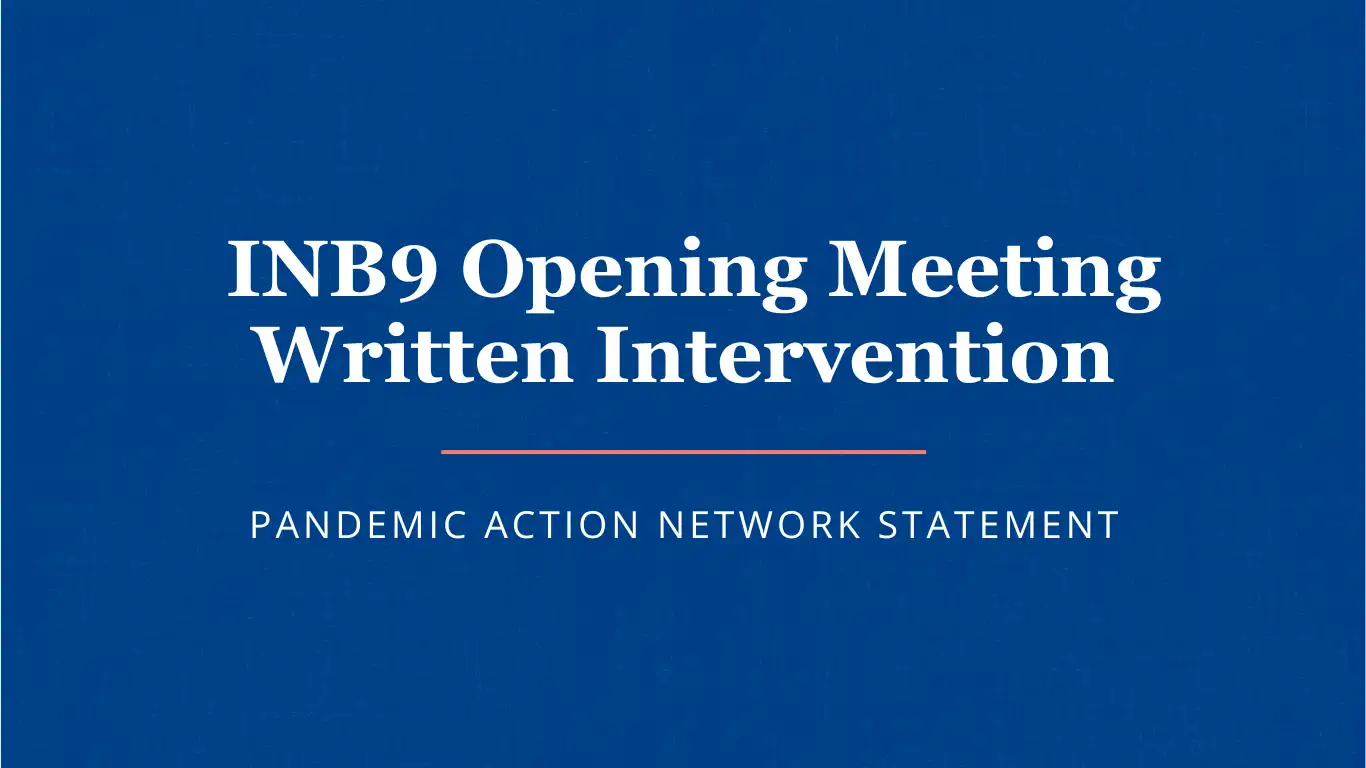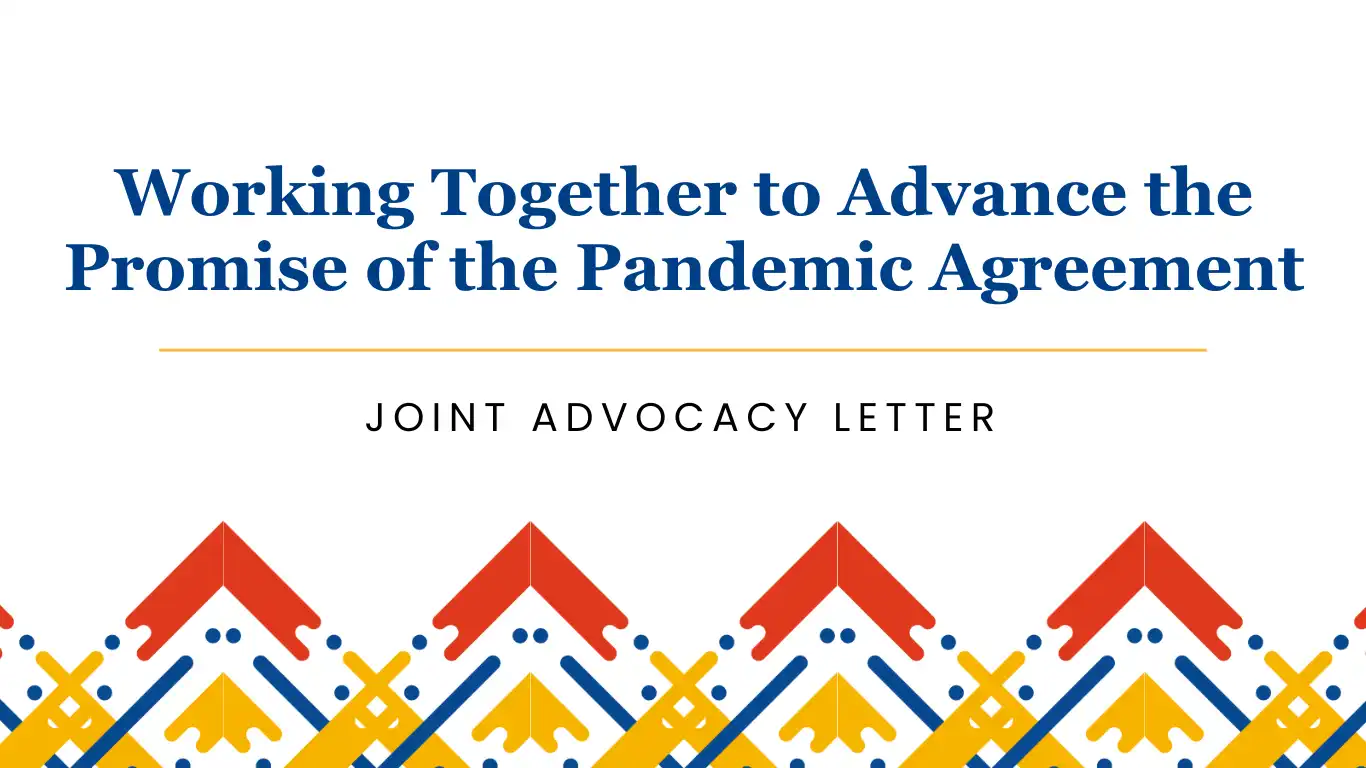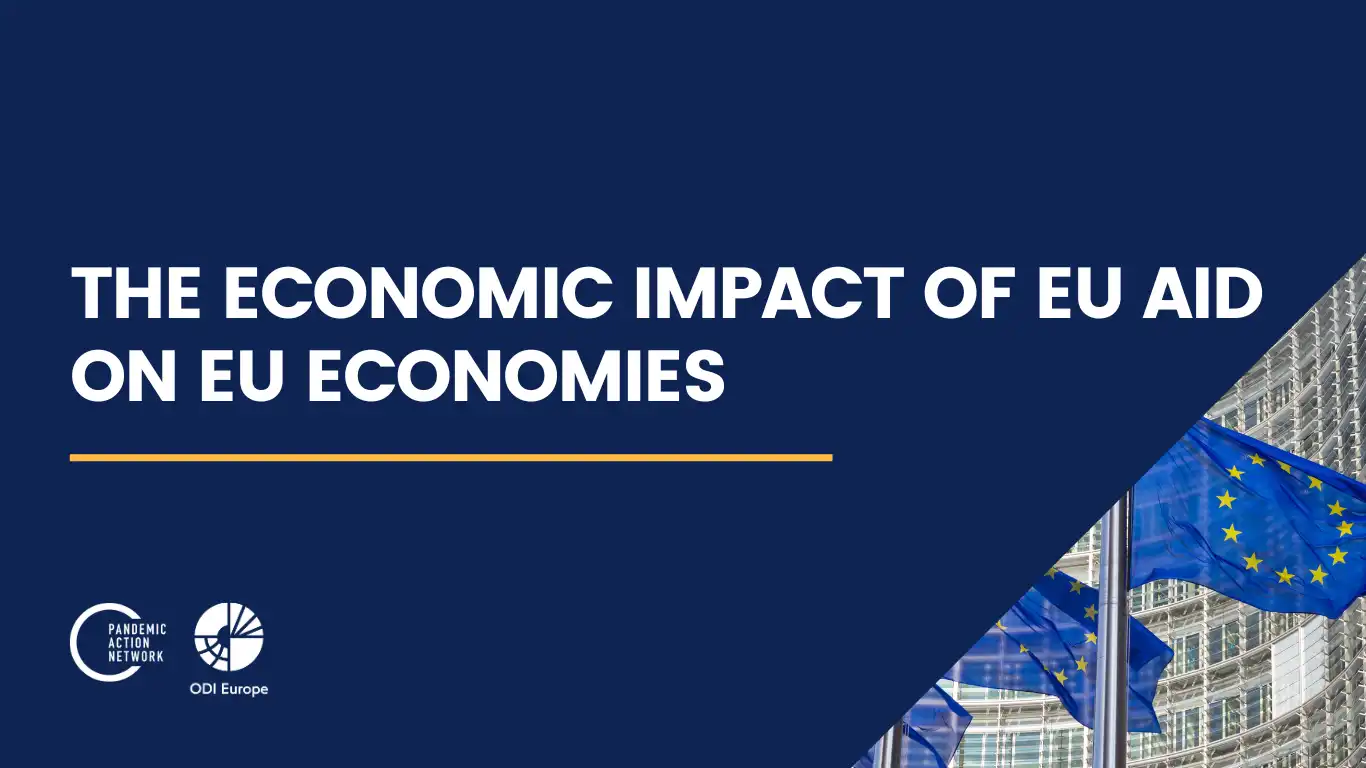Pandemic Action Network’s written intervention submitted during the ninth meeting of the Intergovernmental Negotiating Body (INB) for a WHO instrument on pandemic prevention, preparedness and response. A version of this statement was delivered during the opening meeting on March 18, 2024.
First, we implore you to strengthen the text over the next two weeks and bring it to a place where seizing this historic opportunity is within reach, leading to a meaningful agreement announced at the 77th World Health Assembly.
Second, there is a minimum standard the world needs to uphold. Pandemic Action Network has partnered with civil society experts to present a comprehensive revised text, which has been featured in Health Policy Watch.
- We expect to see an agreement that has equity at its heart, not charity. The text covering equity must use binding language, especially on establishing research and development (R&D) hubs working with new technologies without intellectual property (IP) restraints; provisions to ensure access and benefit sharing; expanding distributed manufacturing capacity, removing trade-related barriers including IP; creating technology transfer hubs; ensuring affordable pricing; equitable access conditionalities for all public R&D funding; and transparency of licensing agreements.
- Parties should commit to securing substantial predictable, democratically managed, additional, long-term, and sustainable financing, based on proportional contributions according to capacity. To avoid unnecessary duplication, fragmentation, competition, or delays, the agreement should utilize existing mechanisms, including but not limited to the Pandemic Fund for preparedness capacity development for LMICs and the World Health Organization (WHO) Contingency Fund for early global outbreak response. The agreement should guarantee these mechanisms are fully and sustainably financed, and should ensure rapid country access to surge funding for pandemic response.
- The text must establish a fully independent monitoring committee in addition to states’ self-monitoring and a peer review mechanism. The committee should assess the timeliness, completeness, and accuracy of state self-reports, and its reports should be submitted annually to the Community of Practice (COP) and made public. The COP must meet annually and establish official cooperation channels with civil society organizations.
- The text must establish clear and enforceable obligations for preventing the spillover and spillback of zoonotic diseases, address the drivers of pathogen spillover via the One Health approach, and provide the support needed for countries to deliver on these obligations. The text must specifically define prevention and reference the One Health Joint Plan of Action. The Food and Agriculture Organization, WHO, World Organization for Animal Health, and United Nations Environment Program should be assigned a formal role within the instrument to support Member States in the development and implementation of One Health strategies.
- It is critical that language on “persons in vulnerable situations” explicitly include gender and that parties agree to collect, report, and analyze data disaggregated by sex, gender, ethnicity, race, and age. Parties must commit to upholding social protections and accessibility to services for all, especially for vulnerable groups, during health emergencies and protect and maintain all essential health services.
Third, more and better civil society engagement is needed in these crucial deliberations and in future processes set up by the agreement. Civil society, from community groups to policy experts, can help advance this process at this crucial stage and can help communicate publicly the importance of this agreement.



